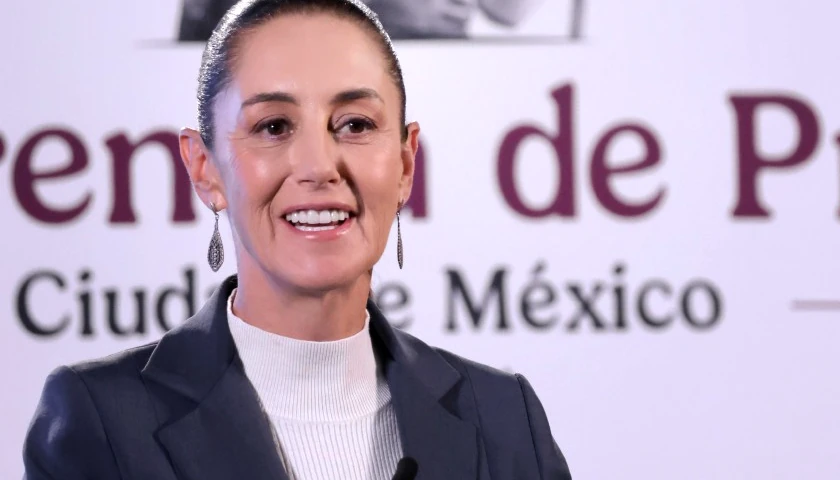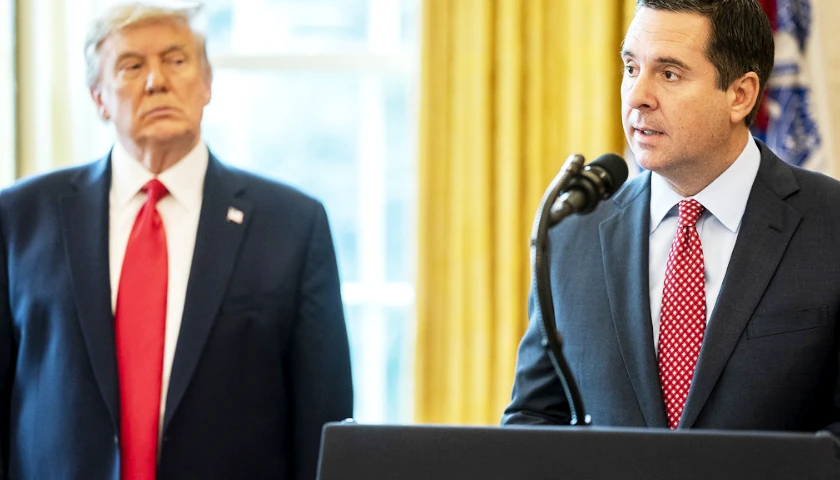The attorney behind 4GoodGovernment and its Nashville Taxpayer Protection Act, Jim Roberts, told The Tennessee Star that the proposed Amendment 1 to the Charter of the Metropolitan Government of Nashville and Davidson County forever eliminates citizens’ ability to amend the charter for any reason.
Roberts is well-versed on the topic of Metro charter amendments, having successfully navigated the petition process for the Nashville Taxpayer Protection Act (NTPA) twice, but a lawsuit by Metro government kept it from being put on the ballot.
Amendment 1 and three additional amendments to the Metro Charter will appear on the August 4 election ballot. At 20 pages in length and covering 65 elected offices, 26 judicial retention questions and the four proposed charter amendments, it is the longest ballot in the history of Nashville-Davidson County.
Amendment 1, which is three pages long, deletes the current provision in the charter and replaces it with entirely new language on the topic of amending the charter.
“It is the greatest governmental act of voter suppression since the 1960’s and,” Roberts railed against the Amendment 1 the proposal, “if it passes, all prior voter initiatives will be undone.”
“A 60-year-old citizens’ right founded in and fundamental to the formation of the Metropolitan government will be gone with little honest discussion,” warned Roberts.
The two ways that the charter can be amended is by council resolution, approved with a two-thirds vote of the council members, or a citizen-led petition process. Both ways then need to be approved by Nashville voters through a referendum.
Amendment 1 was proposed by Councilman Bob Mendes and approved by the council. As currently required in the charter, a brief description of the amendment appears on the ballot with the intent to convey the meaning of the amendment. The summary that appears on the ballot reads:
The amendment would modify the process for amending the Charter of the Metropolitan Government of Nashville and Davidson County by a resolution of the Metropolitan Council or a petition of registered voters. The amendment would define the membership and duties of the Charter Revision Commission, which would include review of all proposed Charter amendments and certification of qualifying amendments submitted by petition. The amendment establishes required elements for proposed Charter amendments and deadlines for placing a Charter amendment on a ballot. The amendment provides that a petition certified by the Charter Revision Commission shall be signed by at least ten percent of registered voters within ninety days after the certification in order to be placed on a ballot.
However, the summary leaves out a lot of important details that Amendment 1 would change in the charter.
Chair of the Davidson County GOP, Jim Garrett, compared Amendment 1 to the current provisions that covers amending the charter as written in Article 19, and prepared a thorough analysis of the differences which are primarily related to the citizen-led petition process. It is that portion of the charter that will undergo the most significant changes.
Currently, in Article 19 there are only three requirements for citizens to amend the charter, spelled out in just five paragraphs, whereas the proposed Amendment 1 has six sections containing 25 paragraphs.
Amendment 1 would make major changes to the charter amendment process, Garrett explains, which includes:
- The establishment of a Charter Revision Commission, consisting of seven unpaid members serving four-year terms that are appointed by the mayor and confirmed by the Metro Council. The commission will have the authority to approve the amendments proposed by either the council or through the citizen-led petition process that are to be put to a vote of the people.
- The commission will also have very broad powers to carry out its duties, including holding hearings, compelling attendance of witnesses, and the presentation of books, papers, and records pertinent to the hearings. The witnesses would be under oath during such proceedings. The commission will have the authority to apply for an order from chancery court for a failure to comply.
- Before a citizen-led petition even gets to the commission, the petition must be filed with the Metro clerk and include the new requirement of a statement of financial impact of the proposed amendment. While this is a requirement of the council resolution process, the council has access to staff to prepare such a document that would be prohibitive to the average citizen initiating a charter amendment. If the commission identifies any problems with the petition, citizens have 15 days to “cure” the problems.
- Citizen-led petitions will have the additional requirement to obtain commission approval of the language, substance, and subject matter of the charter amendment. The commission can deny certification of the petition for seven different reasons. “Any of these seven reasons is certainly nebulous or vague enough to give the commission plenty of room to not certify a petition,” Garrett assesses.
- Citizen-led petitions would require signatures of at least ten percent of Nashville’s registered voters. Currently, the threshold is 10 percent of the voters that participated in the previous election. For the Nashville Taxpayer Protection Act, Roberts said over 27,000 signatures were collected the first time and over 11,000 the second time based on the current requirement. No group has ever collected more than 7,000 to 8,000 signatures before, according to Roberts. Amendment 1 would require more than 48,000 signatures in order to achieve 10 percent of the current 483,078 registered voters.
- Citizens have to be within just 90 days of a general election to obtain the approval of the commission, obtain all of the required signatures and have the signatures reviewed for the amendment to get on the ballot.
- Citizens will be limited to one petition every two years, whereas they now are limited to not repeating the same petition more than once in a two-year period.
Councilman Bob Mendes, the sponsor of Amendment 1, through his blog encourages passage of his proposal and attempts to explain the reasons why.
Roberts, however, in a statement to The Star strongly refutes the claims made by Mendes.
Mendes: This amendment changes the process for amending the Metro Charter. It is an attempt to bring certainty to the process and to reduce litigation. Over the last several years, Metro has had to pay outside lawyers more than $1 million to fight lawsuits about amending the Charter. It’s time to fix this process.
Roberts: The only “certainty” it brings is that no citizens group will ever be able to sponsor a Charter Amended again. 4 Good Government collected 27,000 plus signatures for the Nashville Taxpayer Protection Act the first time, and over 11, 000 the second time. No group has EVER collected more than 7,000-8,000 signatures before.
Metro had to pay “outside lawyers” because it CHOSE to sue the Election Commission to stop it from placing the NTPA before the voters. It is Metro’s own arrogance and stupidity which costs the city money. It would have been free to leave the ballot initiative on the ballot. This is EXACTLY what Metro argued in the Community Oversight litigation in 2018. Only when Metro’s power was being constrained did it think spending millions of dollars in legal fees was a good idea.
Mendes: Currently it is difficult to determine how many signatures are needed to amend the Charter. The amendment would clarify that a petition must obtain signatures from 10% of the registered voters in the county within 90 days.
Roberts: No, it actually quite simple unless you are stupid. The problem with the current 60-year-old system is the number of signatures changes and can range from 4,000 – 9,000. The Amendment increases the number to 10% of Registered voters which is easier to determine but impossible to reach.
Mendes: Currently there is substantial litigation over whether the language on petition forms is legally proper or not. The amendment would require approval of petition language (and any litigation about it) to happen before voters are asked to sign the petition.
Roberts: Allowing Metro or Metro Council to “approve” citizen amendments means no amendment Metro does not like will ever go before the people. The exact opposite of what the Metro Charter has stated for 60+ years.
Mendes: Currently I think that some people try to game the timing of a petition for their advantage. The amendment would spell out the process timeline in more detail to hopefully avoid that gamesmanship.
Roberts: “People” have been “gaming” the system for 60 years according to Mendes. What they are actually doing is complying with 60+ year old rules. It only became “gaming the system” when Mendes didn’t like what the people wanted. Never forget Mendes pushed for a HIGHER property tax increase and “compromised” at the 34%-37% increase. Mendes is patently dishonest and only wants an ever- expanding Metro Government at the expense of the people. He will not stop until our City looks like Detroit or San Francisco.
Mendes initiated Amendment 1 in response to the Nashville Taxpayer Protection Act (NTPA), an initiative of 4GoodGovernment that would have rolled back the 34 and 37 percent property tax increase in 2020 and cap Metro’s ability to raise property taxes more than 3 percent without voter approval, given citizens the power to recall dishonest and corrupt elected officials, end lifetime benefits for elected positions, protect citizens’ charter amendments, protect parks, greenways and public lands being gifted away and protect Nashville taxpayers when it comes to promises made by professional sports teams.
Mendes made it public knowledge that he vehemently opposed the NTPA as did Mayor John Cooper and other Metro public officials.
Metro government sued the Davidson County Election Commission and the citizens in order to keep the NTPA off the ballot, The Star previously reported.
Mendes has been named individually and in his capacity as a member of Metro Council in a lawsuit filed by Davidson County Election Commission Chair Jim DeLanis, The Star reported.
The lawsuit stems from actions taken against DeLanis by Mendes, Metro government and DeLanis’ decades-long employer, the law firm of Baker, Donelson, Bearman, Caldwell & Berkowitz with regard to the NTPA and placing it on the ballot for a referendum vote of the people.
Baker Donelson has Metro government as a client and during the relevant time of the NTPA and the lawsuits filed to get it on the ballot, the law firm made efforts to maintain and increase the revenue it did our could generate from Metro. Metro government pressured Baker Donelson to influence DeLanis as Election Commission Chairman to keep the NTPA off the ballot, threatening to pull the business of Metro and Metro Schools.
One of the claims of the civil lawsuit with criminial implications states:
Metro acting through its public officials and Mendes had implemented the Metro Anti-Referendum Policy to oppose the efforts to place the Tax Referendum on the ballot which policy included efforts by Metro to oppose and discourage the Commission and its Commissioners, who were state officials, from voting to appeal the June 21, 2021 trial court ruling and which policy also included proposed ballot issues written by Mendes and enacted by the Metro Council that would forever prohibit public referendum on certain tax issues unless authorized by state law.
Further to the Metro Anti-Referendum Policy, Mendes proposed two amendments that would have been placed on the ballot only if the NTPA was on the ballot which would have the effect of undoing the NTPA, according to Roberts.
Mendes is also charged in the lawsuit with berating, making allegations against and threatening the Election Commission regarding the NTPA, stating, “We know who you are and what you are trying to do.”
If Amendment 1 passes, “The Council’s first act,” Roberts predicts, “will be to advance an amendment to ‘protect Term Limits’ like Councilman Emily Evans did a few years ago which, in the process, expanded the number of terms from 2 to 3. You can expect it to go to 3 or 4 next time. After that property taxes will skyrocket to to the point that the poor, minorities and the elderly will be forced out of their homes. This is intentional as ‘progressive Nashville’ cares more about re-located Californians and billionaires that its long term residents.”
There are three other amendments appearing on the August 4 ballot, which will be covered in a separate story.
– – –
Laura Baigert is a senior reporter at The Star News Network, where she covers stories for The Tennessee Star.
Background Photo “Nashville City Hall” by euthman. CC BY-SA 2.0.








